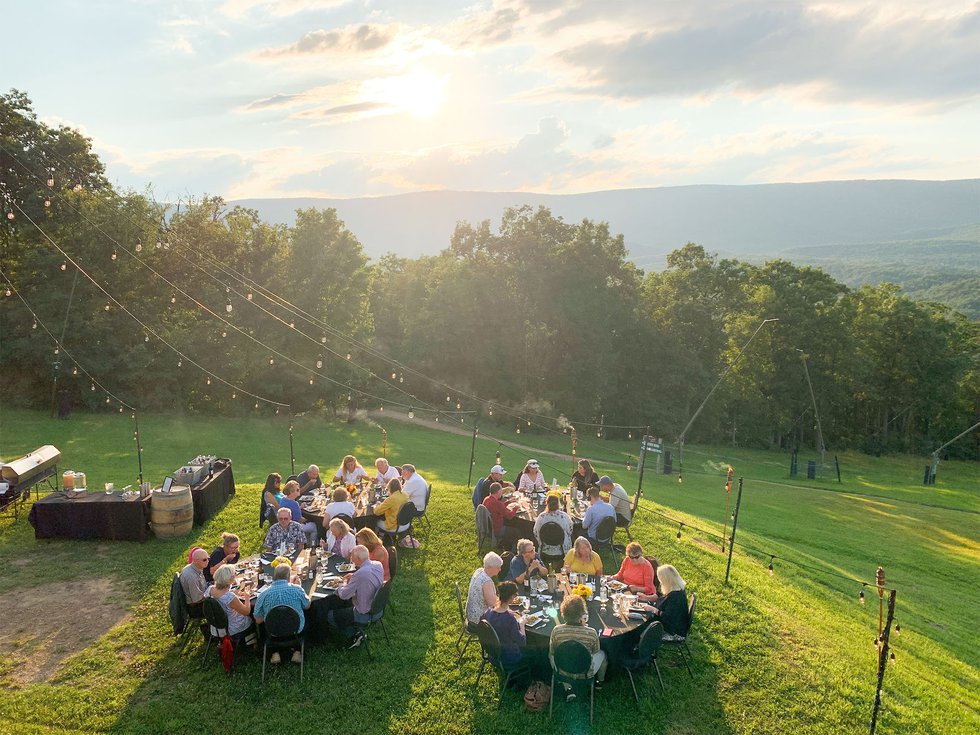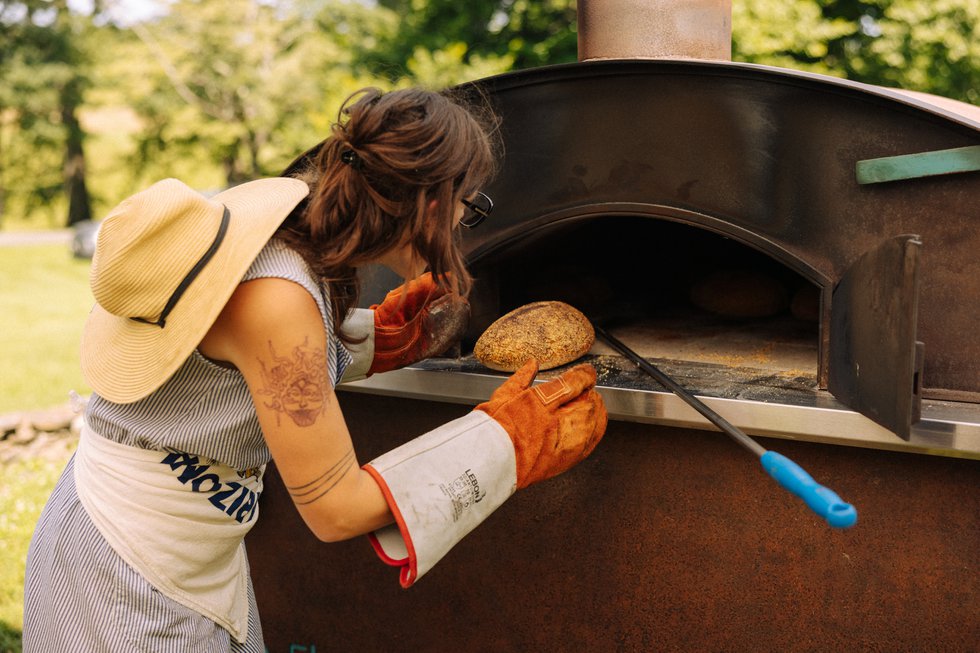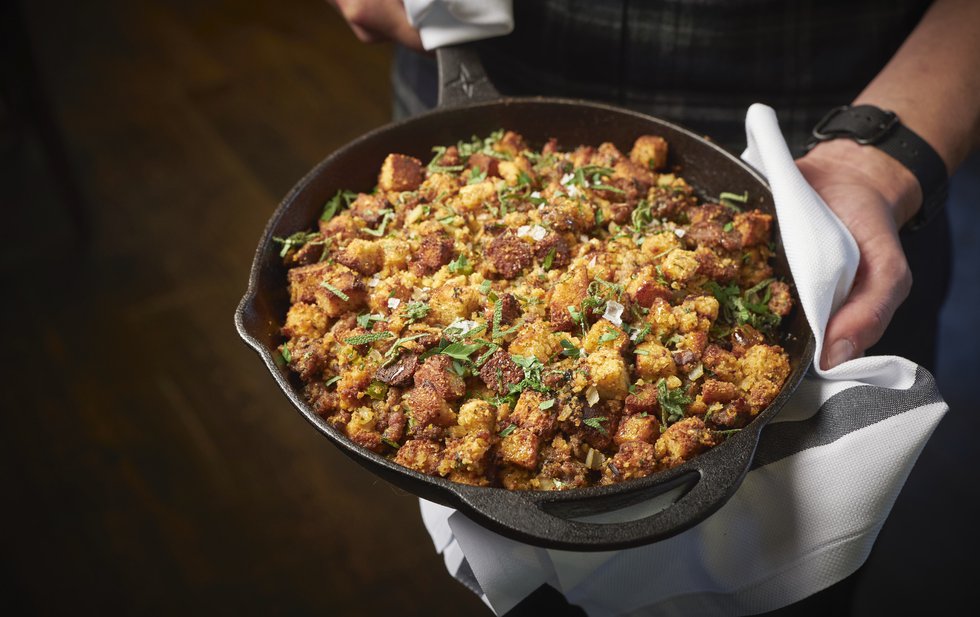The artisanal lure of Deep Roots Milling.
After nearly 200 years of operation, the water wheel at Woodson’s Mill in Nelson County is still turning. Water rises, falls, pushes the equipment of the old flour mill into motion, beginning a process that develops fine, fresh cornmeal and flour, ending with warm, fragrant loaves of bread on the kitchen table.
Charlie Wade, Aaron Grigsby, and Ian Gamble started Deep Roots Milling in February 2020, setting up shop at Woodson’s Mill, a building that’s been standing since the 1790s and milling flour continuously throughout most of its history. They were soon joined by David Woodson, whose grandfather ran the eponymous mill until the middle of the 20th century. He says, “It’s been a childhood dream to see it working, and it is.”

At Deep Roots, they run the mill entirely on water power, using the equipment from the 1840s, and mill to order once a month. The 48-inch stones at the mill house have crushed, cracked, and grinded millions of grains in their time, to this day delivering flavorful products reminiscent of a lost time and tradition.
Part of what’s produced at the mill these days is akin to what it would have produced 200 years ago: open pollinated heirloom grains. They grind spelt, rye, and heirloom blue corn. They also grind “Bloody Butcher,” an old variety generally thought to originate in Virginia. It grows tall and produces kernels of a brilliant blood red.
Though they harken to the past, these grains are still commodities today. The value is obvious to some with histories in the agricultural world.
Grigsby says, “We’ve got sixth generation farmers, usually of Anabaptist background, that historically had a dairy, and they’re switching over.” Having grown feed for livestock, and sold into a punishing commodity market, they are growing for people.
Grigsby explains that the very existence of a market is a driving force behind the return to more traditional grain processing and local networks of farmers, millers, and bakers. “When we helped start the Common Grain Alliance five years ago, that was one of the key things that was identified—the lack of a link between farmers and bakers.”
The CGA is a nonprofit with the mission to connect and support farmers, millers, and bakers in the Mid-Atlantic, “They had bakers saying they wanted to buy local grains, they had farmers saying they wanted to grow grains for the bakers, but with the whole system dismantled, there was no way to do it,” Grigsby says. “I can’t think of another industry out there, at least in food, that became more consolidated than milling. I don’t know the exact statistics, but something like 10 mills produce 99.9 percent of the flour consumed in North America.”
With this mill running and now an alliance in place, the craft of flour refinement may have a chance to stay local, historic, and fresh.
Click here for a Creamy Bloody Butcher Grits recipe, using grits from Deep Roots Milling.

This article originally appeared in the June 2024 issue.










